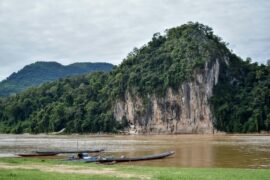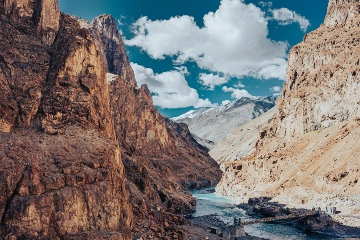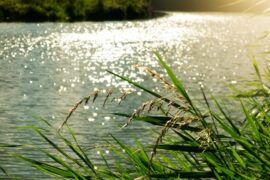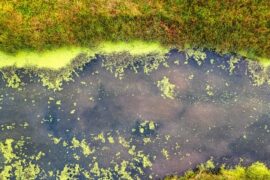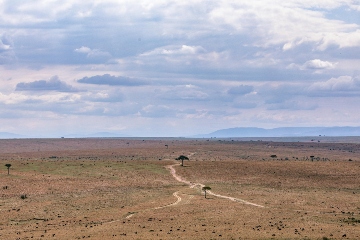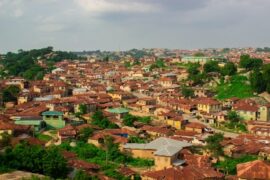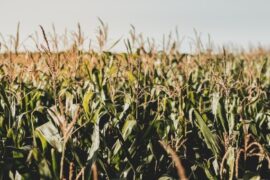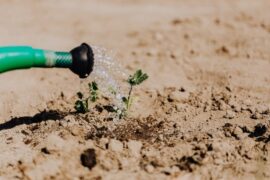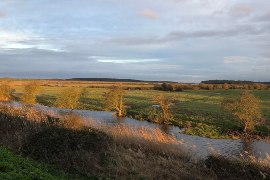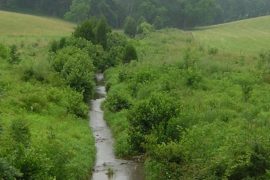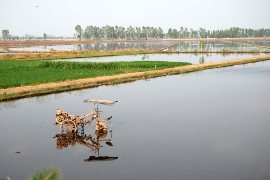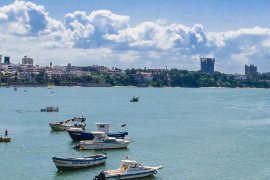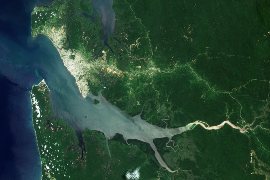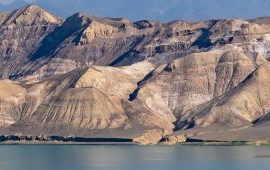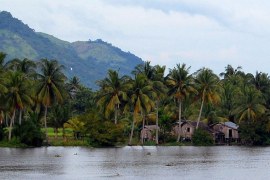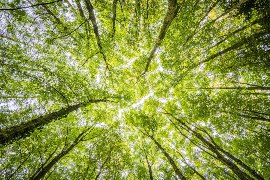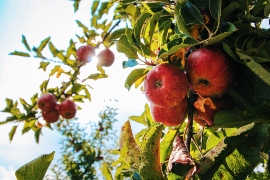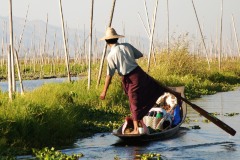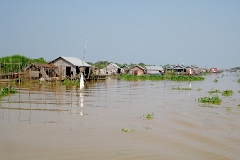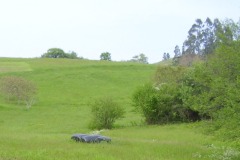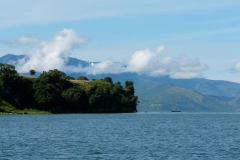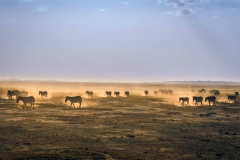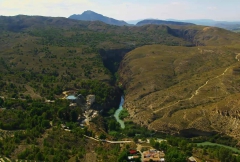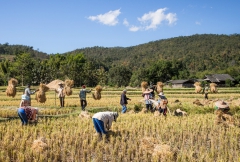Uitdaging
Water ligt aan de basis van alle diensten die ecosystemen leveren, en met name kijkend naar landbouwproductie. De beschikbaarheid van water, zowel qua kwantiteit als kwaliteit, wordt sterk beïnvloed door het functioneren van ecosystemen en daarom is het van cruciaal belang om de samenhang van water en ecosystemen en hun landbouwgerelateerde diensten te begrijpen.
Verschillende belangrijke ecosysteemdiensten zijn expliciet gekoppeld aan de waterkringloop; van het leveren van schoon drinkwater tot het reguleren van overstromingen en het creëren van kansen voor recreatie en culturele activiteiten op het water. Ecosysteemdiensten worden tegenwoordig vaak meegenomen in het watermanagement; met inbegrip van klimaatverandering, stroomgebiedbeheer en geïntegreerd waterbeheer
Het is een uitdaging om ecosysteemdiensten te beoordelen en te waarderen binnen het waterbeheer. Voor het maken van beleid en het prioriteren van investeringen is het noodzakelijk om de voordelen van het behoud en herstel van ecosystemendiensten te beoordelen. Deze voordelen moeten per ecosysteemdienst en per ruimtelijke schaal zowel in biofysische als in economische termen worden gekwantificeerd.
FutureWater-aanpak
De FutureWater-benadering om de watergerelateerde ecosysteemdiensten te waarderen bestaat uit uitgebreide scenariobeoordeling met behulp van simulatiemodellen, analyse en visualisatie. Aangepast landgebruik wordt individueel beoordeeld in relatie tot investeringsportefeuilles. Effecten worden vervolgens beoordeeld op hydrologisch en waterbeschikbaarheidsniveau, en ten slotte op financieel en / of economisch rendement.
Meer specifiek wordt scenario-analyse uitgevoerd door verschillende tools te combineren, namelijk:
- Hydrologische modellen;
- Satellietgegevens (Remote Sensing), om indicatoren van achteruitgang te identificeren en om de potentie van het ecosysteem te bepalen, en
- Return-on-investment analyses. De output van de biofysische beoordeling wordt rechtstreeks in de economische waardering meegenomen.
FutureWater ondersteunt op deze manier plannen voor investeringen in verbeterd stroomgebiedbeheer, b.v. door bosbouw- en landbouwpraktijken te verbeteren, wat de benedenstroomse watergebruikers ten goede komt. Deze plannen worden vervolgens gebruikt om een financieel duurzaam systeem op te zetten binnen het stroomgebied om zo gezondere ecosystemen en duurzaam stroomgebiedbeheer mogelijk te maken.
Gerelateerde projecten
-
NbS for Drought Resilience in Latin America
Under this project, FutureWater supports the World Bank to fill an existing knowledge gap regarding the applicability and potential effectiveness of Nature-based Solutions to reduce risks of droughts, with a focus on Latin America. A set of NbS factsheets and an inventory of useful tools were compiled by exploring a...
-
Model Development and Hydrological Assessments to Inform Ecosystem-based Adaptation Solutions in Lao PDR
The GCF project “Building resilience of urban populations with ecosystem-based solutions in Lao PDR” aims to test an alternative approach to flood control in urban Laos, moving away from a traditional focus on grey infrastructure, such as dams and concrete drainage systems, and towards Ecosystem-based Adaptation (EbA). A consortium led...
-
Springshed Management in the Indian Himalayas
Springs in the Hindu Kush Himalaya (HKH) region are essential for water security, agriculture, economic activities, ecosystem services, biodiversity, and cultural heritage. They sustain nearly 240 million people, including 50 million in India who depend directly on these springs for their water needs. However, almost half of the perennial springs...
-
Climate Resilient Assessment and Investment Analysis in the Limpopo Basin
The primary objective of this study is to undertake a review of the water resources development scenarios considered in the Limpopo Scoping Study (2010) and the Limpopo Monograph (2013), to produce updated future development scenarios and evaluate these in terms of social, economic, and environmental benefits, including improved climate resilience...
-
Nature-based Solutions in the Black Volta Basin: Pre-Feasibility Study
In this project, an analysis is being elaborated that will showcase the potential impact and associated costs of (Nature-based Solutions) NbS to enable effective design and implementation and will support the establishment of sustainable funding mechanisms based on leveraging local beneficiaries.
-
Scientific Support for a Watershed Investment Program for Addis Ababa
Addis Ababa's water supply is under threat caused by the complex interaction of rapid population growth, increased water demand, intensive groundwater development, natural resource degradation, and climate change. A comprehensive Watershed Investment Program should return this situation and secure water supply for the future. An in-depth study is performed to...
-
Pre-Feasibility Work to Identify Nature-based Solutions for Multiple Catchments in Nigeria
This project will involve working across two fee-for-service engagements with the Coca Cola Corporation and Diageo in Nigeria. The identification and prioritisation of NbS for implementation will be achieved through the development of three key products: two prefeasibility analyses for Ogun and Oshun catchments, and a high-level country-wide strategic assessment...
-
Tailor-made Training on Data-Driven Capacity for Ecosystem Services and Management in Iran
This tailor-made training, funded by Nuffic as part of the Mena Scholarship Programme and requested by The Center for Conservation and Development of Sustainable Ecosystems (ZIPAK) in Iran, focused on providing participants with relevant hands-on experience in tools and techniques to enhance their capacity to manage (protected) ecosystems in Iran.
-
Tailor-made Training on Geo-spatial Data Skills Development in Zambia
This tailor-made training, funded by Nuffic and requested by the staff of the The Ministry of Agriculture of the Government of the Republic of Zambia (GRZ), aims to help improving soil water management and crop productivity at the national level. The training focuses on building capacity of participants in accessing...
-
BONEX: Boosting Nexus Framework Implementation in the Mediterranean
BONEX is a project funded by the PRIMA-EU Foundation specifically for the Mediterranean Region. This region faces several challenges to ensure future food and water security, whilst preserving ecosystems. BONEX explores and develops specific solutions promoting the linking of governance with practice to overcome barriers to WEFE (water, energy, food,...
-
Technical Coordination for the Norfolk Water Fund
FutureWater provide support and technical expertise to The Nature Conservancy and Water Resources East in the creation of a Water Fund for Norfolk, in the East Anglia region of the UK. This work identifies Nature-based Solutions (NbS) to be implemented accross the county, aiming to leverage blended finance to fund...
-
Technical Annexes on Nature-based Solutions for Water Security
The Nature Conservancy (TNC) is producing technical modules and guidance documentation to enable water sector actors and their funders to invest in Nature-based Solutions for Water Security (NbS-WS). Part of the material being developed is a module on technical options, which will include annexes with key information for each of...
-
Evaluating the Extent of Salinity Intrusion and the Riverine, Estuarine and Coastal Habitat Conditions in the Lower Mekong Basin
Within this project, detailed methodologies are developed for periodical implementation of regional studies on the extent of salinity intrusion in the Mekong Delta; and the condition of riverine, estuarine, and coastal habitats in the Lower Mekong Basin. A literature review is conducted to identify successful approaches from the Mekong Region...
-
Design Study for the Mombasa Water Fund
A design study for the Mombasa Water Fund is performed by assessing biophysical, financial, economic and socio-economic benefits, and identifying potential governance and financing models. The Fund should improve the quantity and quality of source waters for Mombasa City by channelling investments into source protection and catchment conservation measures of...
-
Improved Watershed and Forestry Activities to Secure Hydropower
This study supports Gabon in preserving Hydrologic Ecosystem Services in a river basin which faces challenges due to planned hydropower and forestry operations. It will evaluate various watershed management scenarios which may improve hydrological flow conditions and hydropower options. FutureWater analyzes hydrological ecosystem services provision in the Komo basin through...
-
Baseline Assessment for the Identification of Landscape Restoration Options in Kyrgyzstan
FutureWater's role in this project is to provide remote sensing and GIS services with an aim of highlighting degraded areas of land in Kyrgyzstan and determining where restoration interventions are possible. The identification of highly degraded areas is achieved by analysing a number of remote sensing products, notably including NDVI...
-
Integrated Catchment Management in the Cagayan River Basin
The Ridge to Coast, Rain to Tap: Sustainable Water Supply Project (R2CR2T) is an integrated approach to addressing flooding in the Cagayan River basin on Mindanao in the Philippines. FutureWater was hired to support the R2CR2T project and their local team on the development and application of a Decision Support...
-
Determining biomass potential with Lidar point cloud of the Netherlands
This MIT feasibility project investigates the opportunities of an innovation project for determining the biomass potential from local nature management and green maintenance using the publicly available Lidar point cloud of the Netherlands. If the results are positive, this may lead to an innovative logistics support service where producers and...
-
Preventing frost damage in fruit cultivation by thermal imaging with flying sensors
This feasibility project investigates the opportunities of an innovation project for monitoring the effectiveness of wind machines as a frost protection measure in fruit cultivation using flying sensors (drones) equipped with a thermal imager. The results of this feasibility project may lead to an innovative information service to fruit growers...
-
Boundary Demarcation and Ecosystem Services Mapping of Inle Lake Region, Myanmar
The assignment supports the newly established Inle Lake Management Authority (ILMA) by developing up-to-date, spatial datasets, which are to be included in the ILMA geodatabase. More specifically, the existing Inle Lake MAB boundary and zoning are confirmed and updated. Maps of land-use and different ecosystem services are produced and validated...
-
Water Resources and Eco-hydrological Assessments of Tonle Sap and Mekong Delta Basins
The overall project objective is to support MOWRAM to make more informed, evidence-based water resources management and irrigation investment decisions through better understanding of water resources and ecosystems of two river basin groups: the Tonle Sap and the Mekong Delta. The project concerns (i) rapid water resources assessment of the...
-
Satellite-based Monitoring of the Health Status of Grasslands at the Alagon Valley
This project is part of the technical-innovation support provided by FutureWater to ECOPRADERAS, an EIP-AGRI Operational Group which aims to improve the sustainable management of grasslands located at the Alagon Valley (Extremadura, Spain). Specific tasks included: the definition of a methodological framework for monitor the health of grasslands at the...
-
Review of the Kisii Water Supply project
A large water supply project is being planned in the Lake Victoria region, Kenya, potentially providing reliable and clean water to around 500,000 people. The Dutch Government supports this project. An Environmental and Social Impact Assessment (ESIA) was made by the developer. This ESIA needed to be reviewed by a...
-
Impacts of climate change and sustainable land management investments on the Upper Tana
As part of the WISE-UP to Climate project FutureWater evaluated the impacts of climate change on investments in sustainable water and land management in the Thika/Chania watershed. The previously built SWAT model for this area was used to assess the impact of land management interventions under six different climate scenarios....
-
Hydrological Evaluation and Ecosystem Valuation of the Lukanga Swamps
The Lukanga Swamps in Zambia are an important biodiversity area and serve as a major hydrological component of the Kafue basin. FutureWater was contracted to assess the value and contribution of the Lukanga Swamps to the Kafue Basin. FutureWater applied a combined approach of (i) remote sensing, (ii) SWAT hydrological...
-
Economic assessment of management alternatives in the protected areas of LAG Campoder
This project aims to advertise about the environmental assets found in the LAG Campoder at the Murcia Region (SE Spain), and to quantify using social and economic techniques the degree in which these assets are perceived by local population. FutureWater is responsible for the characterization and description of three representative...
-
Inclusive Development Paths for Healthy Red River Landscapes
Rapid land use changes in the Red River Basin threaten water resources. This project will be working in the Day River Catchment, a Red River distributary important for Hanoi, where most of these problems are manifest. The project will develop equitable and economically viable pathways for the land and water...


